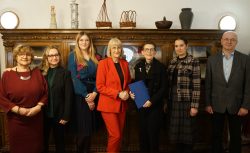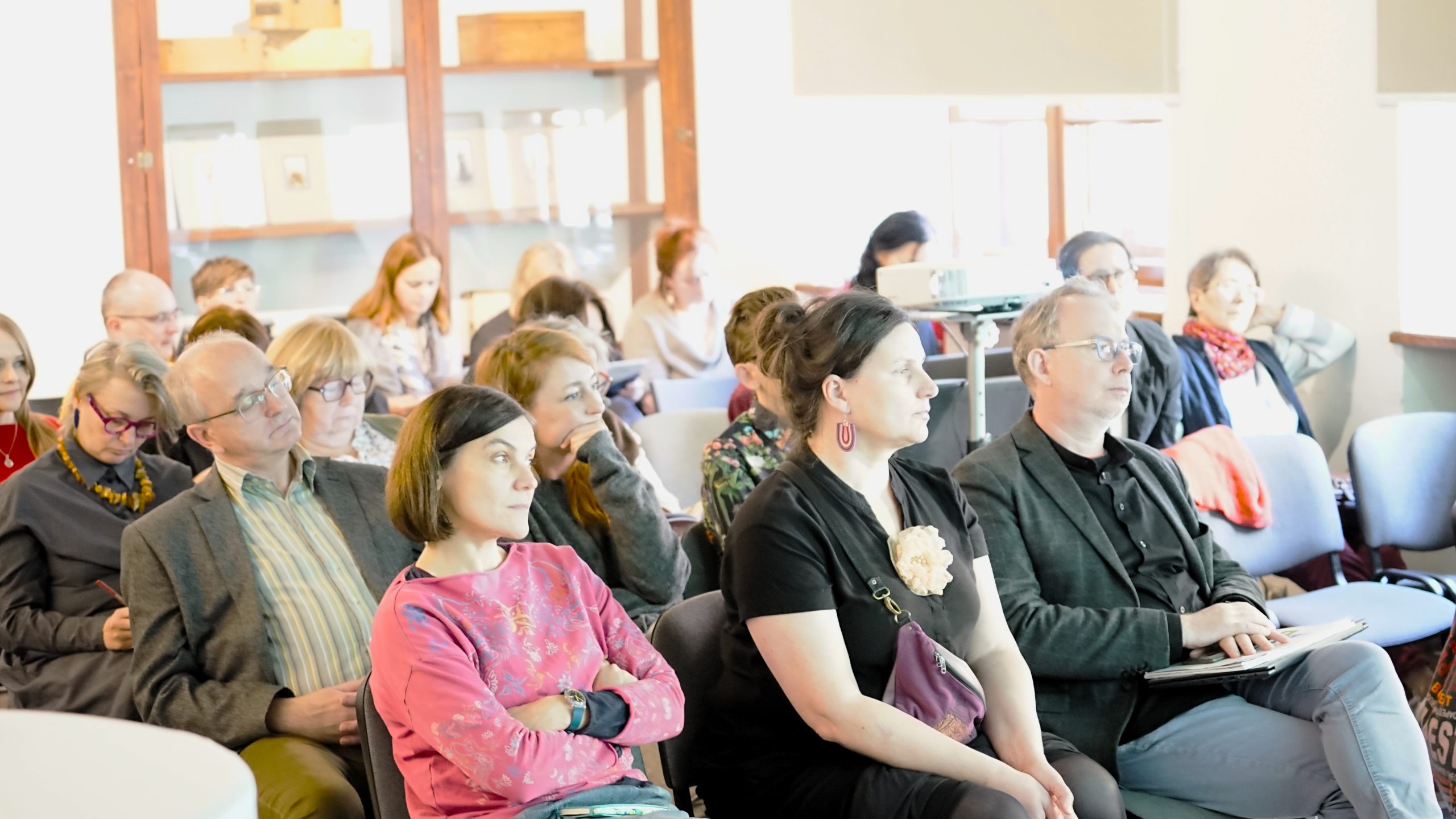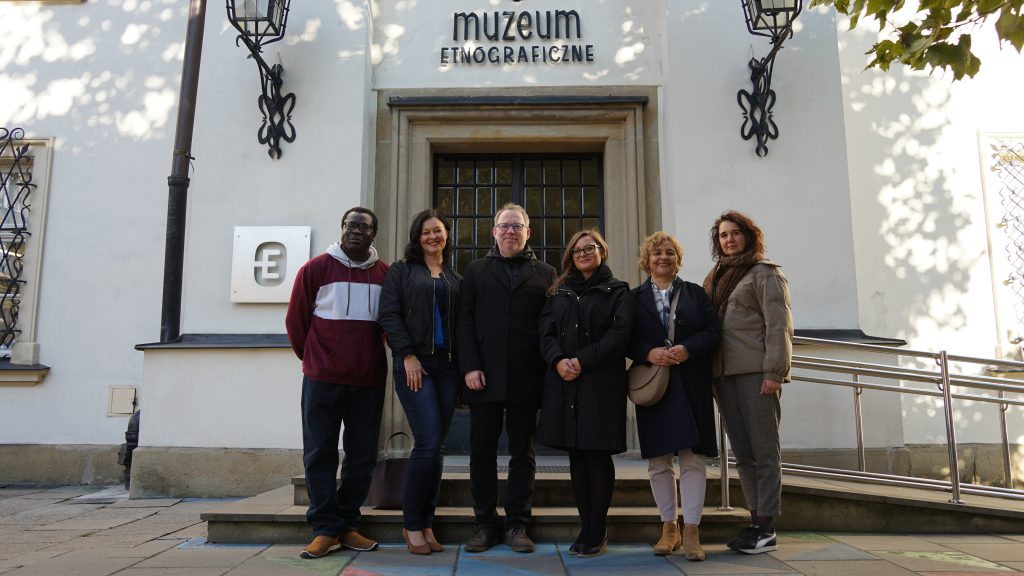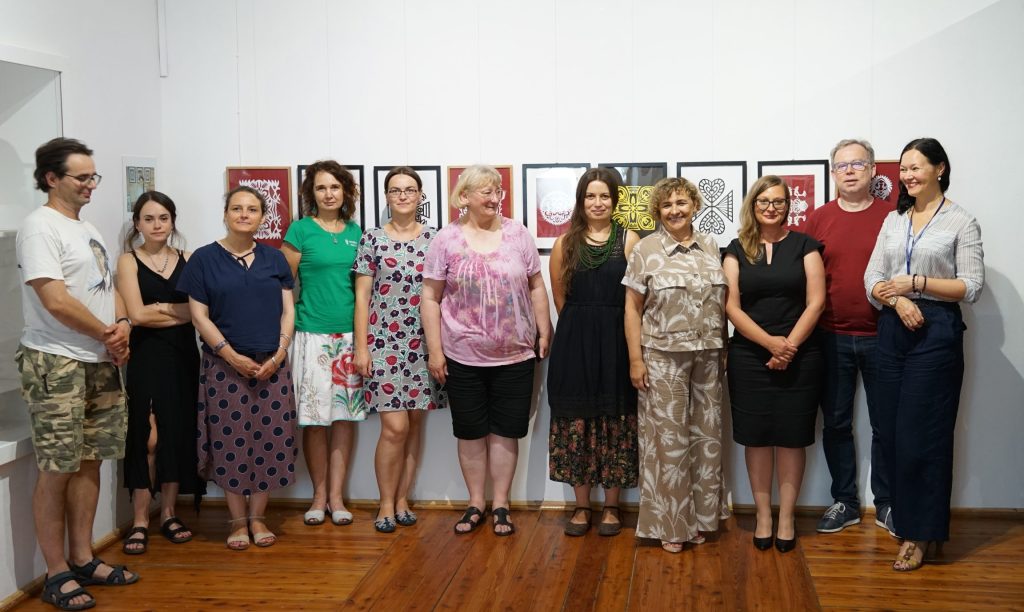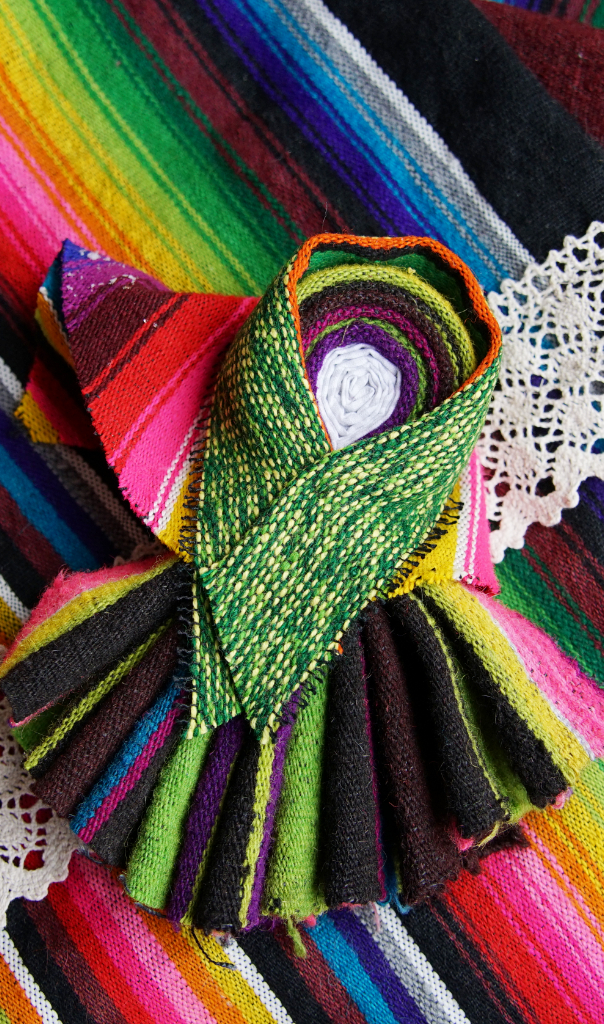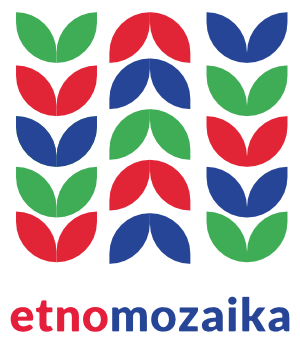
The National Institute of Culture and Rural Heritage, carrying out its statutory tasks, which include the initiation and support of scientific research, in 2023 established the Ethnographic Research Team, consisting of Prof. Anna Weronika Brzezinska (Adam Mickiewicz University), Dr. Katarzyna Ceklarz (Academy of Applied Sciences in Nowy Targ), Elżbieta Dudek-Młynarska (Ethnographic Museum in Rzeszów), Dr. Mamadou Diouf (NIKiDW), Małgorzata Jaszczołt (NIKiDW), Dr. Arkadiusz Jełowicki (National Museum of Agriculture and Agro-Food Industry in Szreniawa), Dr. Katarzyna Radziwiłko (NIKiDW) and Izabela Wolniak (NIKiDW) - project coordinator. The result of the Team's work is a project entitled "Ethnomosaic. Contemporary cultural heritage of villages".
The project Ethnomosaic. Modern Rural Cultural Heritage is a research proposal that refers to the work of Oskar Kolberg from the 19th century. The year 2024, marks the 210th anniversary of the birth, of this considered the first ethnographer and the greatest field researcher of the Polish countryside. In its assumptions, the Ethnomosaic project, implies a reference to the idea of Oskar Kolberg's All Works, due to its nationwide scope and plan for multi-faceted research in the field of folk and traditional culture. And just as in the 19th century it was an original work, covering a huge amount of research material from the pre-partition areas of the Polish-Lithuanian Commonwealth, presented in the form of regional monographs, the Ethnomosaic project is intended to be a kind of study of contemporary folk and traditional culture of the early 21st century, presenting it in a nationwide perspective. It is a unique concept that aims to document and analyze selected cultural phenomena related to rural heritage and tradition. This is to serve the primary goal of the project, which is the preservation and protection of contemporary Polish traditions derived from peasant culture and the strengthening of traditional culture.
With the intensification of popularization activities, there is a noticeable increase in demand for reliable sources of knowledge, presenting new approaches to folk and traditional culture. There is a need to create publications based on solid scientific research, containing high-level content, written in a way that is accessible and understandable to a wide audience. As interest in the culture of the Polish countryside grows, there is a need to develop content that will not only serve as a source of knowledge, but also inspire further research and action.
This project, and the publications that follow, are created to meet the expectations of both specialists and regionalists, enthusiasts and all those who wish to properly cultivate knowledge about the culture and tradition of the Polish countryside at a high level of content. Ethnomosaic. Contemporary Cultural Heritage of Rural Areas, will be a compendium of scientific knowledge conveyed in a clear, accessible and comprehensible manner, serving as a resource for those who conduct formal and informal education activities, enthusiasts, members of rural housewives' circles, Volunteer Fire Brigades, local activists, cultural animators and teachers. We want to put in the hands of our audience an indispensable tool when creating educational offers in the field of rituals or contemporary cultural practices of the Polish countryside at the turn of the 20th and 21st centuries.
The National Institute of Culture and Rural Heritage, is keenly interested in cooperating with cultural and scientific institutions: museums, universities, community centers throughout the country, in carrying out field research and compiling the results in all the provinces chosen as the key for this publication. It will be structured according to selected thematic categories, including language, storytelling, verbal and musical folklore, annual and family rituals, knowledge and practices about nature and the universe, knowledge and skills related to handicrafts and crafts, and culinary. NIKiDW, as the operator of the research, will support field activities conducted by partner institutions, and the collected material will be deposited in a dedicated Archive.
We started our pilot research, in cooperation with the Ethnographic Museum in Rzeszow, from the Podkarpackie province. This is a region with a particular vitality of folk traditions, where Jewish, Ukrainian and Lemko influences can be observed both in the past and today. So there is a chance to obtain intervening comparative material. At the moment, we are focusing on developing this research and working out a research model to be applied to other provinces.
Regulations of the Ethnomosaic project (.pdf)
Contact persons:
Izabela Wolniak, Ethnomosaic Project Coordinator, phone 784 225 315,
email: Izabela.Wolniak@nikidw.edu.pl
Małgorzata Jaszczołt, Acting Director, tel. 517 125 342
Mamadou Diouf, tel. 511 543 441
e-mail: etnomozaika@nikidw.edu.pl
Etnomozaika na Międzyuczelnianym Obozie Etnograficznym
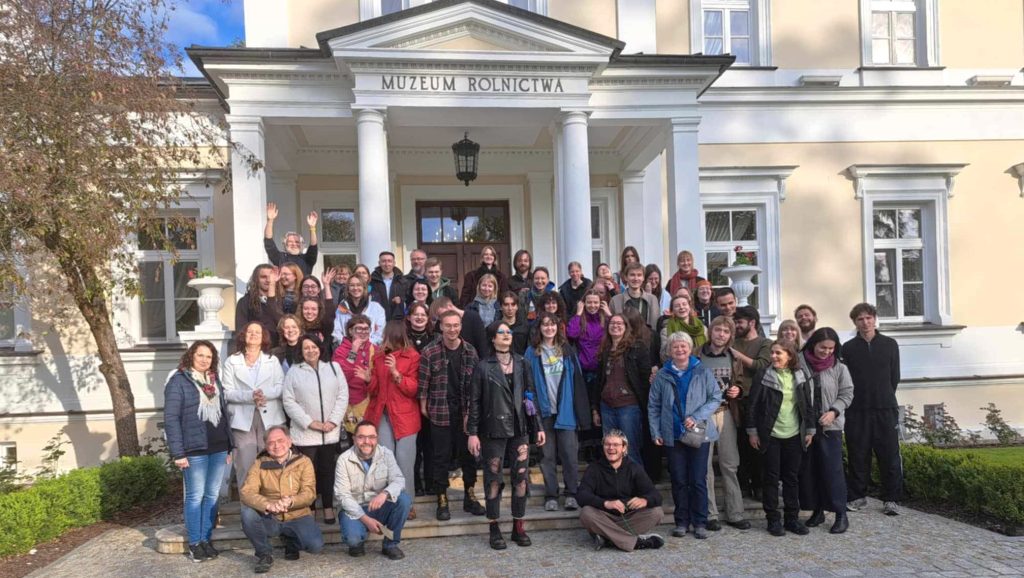
Międzyuczelniane Obozy Etnograficzne (MOE) to tradycyjne spotkania studentów etnologii i antropologii kulturowej z różnych uczelni, organizowane w celu prowadzenia badań terenowych i integracji. W tym roku wzięły udział następujące ośrodki uniwersyteckie: Uniwersytet Jagielloński, Uniwersytet Łódzki, Uniwersytet Mikołaja Kopernika w Toruniu, Uniwersytet Warszawski, Uniwersytet Wrocławski oraz Stowarzyszenie Muzeów na Wolnym Powietrzu w Polsce, Podlaskie Muzeum Kultury Ludowej, Muzeum Rolnictwa im. K. Kluka w Ciechanowcu oraz Narodowy Instytut Kultury i Dziedzictwa Wsi.
Badania naukowe pt.: „Dziedzictwo kulturowe podlaskiej wsi dawne i współczesne konteksty” realizowane były wokół Ciechanowca i miejscowości wchodzących w skład Krainy Otwartych Okiennic. Część z nich dotyczyła projektu badawczego NIKiDW pn. Etnomozaika.
16 maja 2025 roku w Muzeum Rolnictwa w Ciechanowcu miała miejsce konferencja podsumowująca badania pt. „Dziedzictwo kulturowe podlaskiej wsi – dawne i współczesne konteksty”, z udziałem Dyrekcji Muzeum Rolnictwa im. Ks. K. Kluka w Ciechanowcu i Podlaskiego Muzeum Kultury Ludowej w Wasilkowie, Prezesa Stowarzyszenia Muzeów na Wolnym Powietrzu, koordynator projektu Etnomozaika NIKiDW oraz Dyrektor Departamentu Kultury i Dziedzictwa Urzędu Marszałkowskiego Województwa Podlaskiego, współfinansującego badania.
NIKiDW and the Museum "Upper Silesian Ethnographic Park in Chorzów" signed an agreement on cooperation
12 lutego 2025 roku w gmachu Narodowego Instytutu Kultury i Dziedzictwa Wsi w Warszawie przy ul. Krakowskie Przedmieście 66 odbyło się uroczyste podpisanie porozumienia o współpracy z Muzeum „Górnośląski Park Etnograficzny w Chorzowie”.
The cooperation agreement was signed by Directors Elzbieta Osinska-Kassa (NIKiDW) and Paulina Cius-Górska (GPE Museum) in the presence of accompanying persons from the Institute and the Museum.
The signed agreement concerns close cooperation in the scientific research project "Ethnomosaic. Modern Rural Cultural Heritage" and popularization and educational activities in promoting and developing cultural sciences and protecting cultural heritage.
The Chorzow Museum will become a Partner Institution of the project in the Silesian province, which opens up new opportunities for research and promotion of regional culture. Thus, the agreement includes provisions for active participation in the Ethnomosaic project , in the development and publication of research, in the archiving and processing of materials, and in their analysis, interpretation and popularization of the results.
ETHNOMOSAIC - THE NEXT STAGE OF THE
PROJECT - RESEARCH IN THE SILESIAN PROVINCE
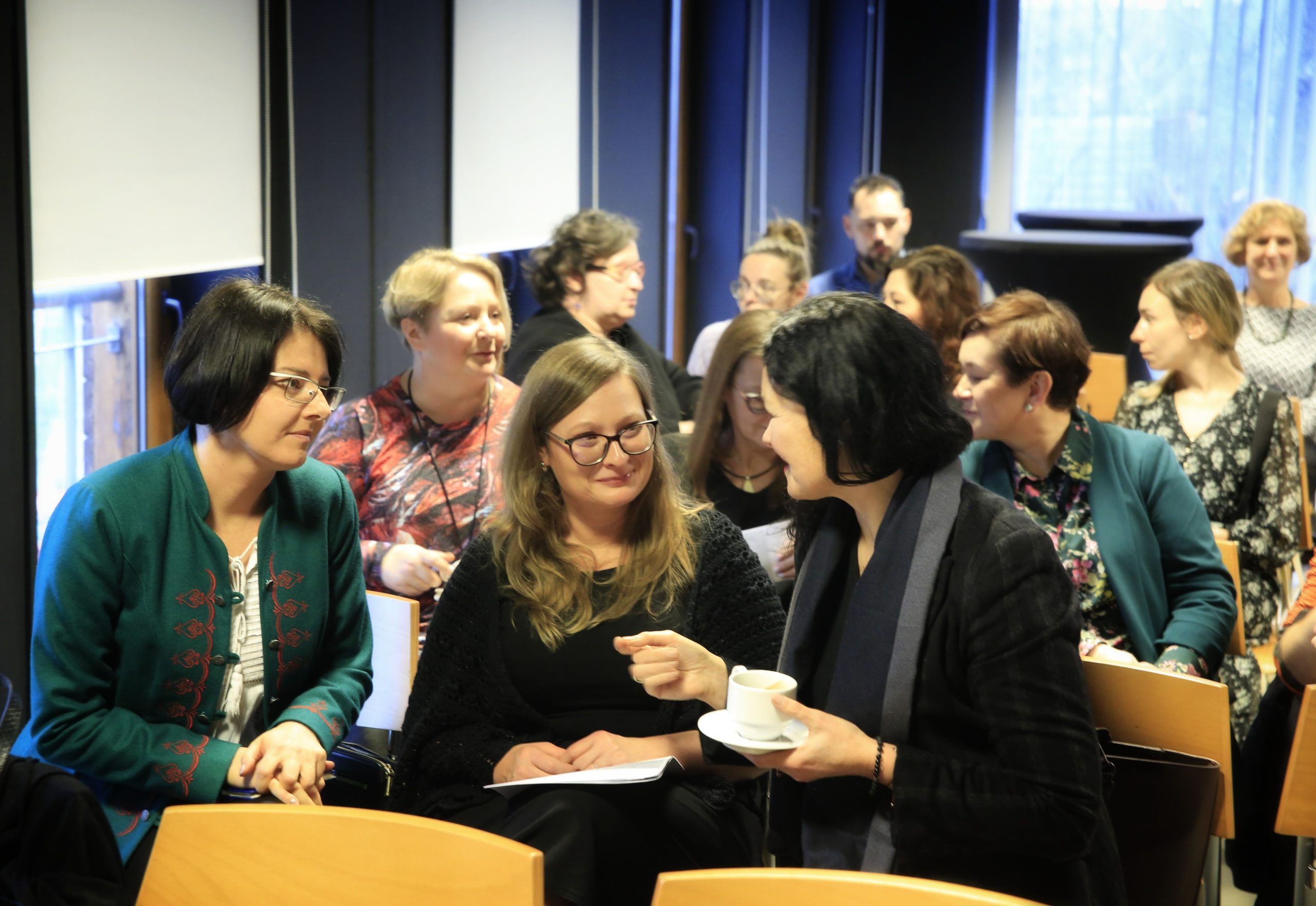
On January 31 and February 1, the fifth Seminar "Ethnomosaic. Contemporary cultural heritage of the countryside". This time the Team Ethnographic Research NIKiDW presented the idea of the project in the hospitable thresholds of the Museum "Upper Silesian Ethnographic Park in Chorzow". The meeting was attended by the Directorate and staff of the Museum, employees of cultural institutions, researchers and experts from all over the Silesian province.

Seminar program
11.00 - 11.10 Welcome to the Seminar/Izabela Wolniak NIKiDW
11.10 - 11.20 Presentation of the Director of the Museum "Upper Silesian Ethnographic Park in Chorzów" Mrs. Paulina Cius-Górska
11.20 - 11.30 The National Institute of Culture and Rural Heritage - short presentation/ Małgorzata Jaszczołt - plenipotentiary of the director of NIKiDW
11.30 - 11.40 About the Ethnomosaic project/IzabelaWolniak - project coordinator
11.40 - 11.50 The Ethnomosaic Project in the light of documents/Dr. Katarzyna Radziwiłko NIKiDW
11.50 - 12.00 Among the depositories. Research of non-material cultural heritage in Malopolska/ Dr. Katarzyna Ceklarz, Academy of Applied Sciences in Nowy Targ, PTL
12.00 - 12.15 Ethnomosaic in the Podkarpackie Province - Assumptions and implementation of field activities/ Elżbieta Dudek-Młynarska, Ethnographic Museum in Rzeszów, PTL
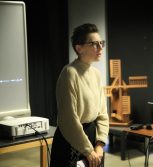
12.15 - 12.30 coffee break
12.30 - 13.00 Ethnomosaics in Silesia - Methodological introduction/Dr. Arkadiusz Jełowicki, National Museum of Agriculture and Agro-Food Industry in Szreniawa, PTL
13.00 - 14.00 discussion - questions and answers/all participants
14.00 - 14.30 Summary of the Seminar, setting dates for future meetings/ members of the Ethnographic Research Team
The main topic of the meeting was planned ethnographic research in the Silesian province, as well as legal and methodological aspects of field research. Participants stressed the importance of reliable documentation and analysis of rural cultural heritage, emphasizing the role of field research in preserving folk traditions and culture.
An important element of the Ethnomosaic project is the participation of partner institutions in conducting field research, popularization and educational activities related to the protection of cultural heritage. The Chorzow Museum will become a Partner Institution of the project in the Silesian province, which opens new opportunities for research and promotion of regional culture.
MAŁOPOLSKA - TIME TO GO
The research project "Ethnomosaic. Contemporary Cultural Heritage of Villages" was presented at the October meeting in Cracow. The meeting was attended by members of the Ethnographic Research Team, provincial coordinators, researchers wishing to participate in the project (recommended by the coordinators), invited guests and the Directorate and staff of the Ethnographic Museum in Cracow.

The established research team began field research throughout the Malopolska province in early November. Due to the great diversity of the region, the Ethnographic Research Team decided to divide Malopolska into three parts and select three coordinators for the research work: counties located in the north of the province, with the center in Krakow, the southwest with the center in Zakopane and the southeast in Nowy Sącz. The research of this stage will last until the end of December to undertake further work next year.
Agreement on cooperation with the S. Udziela Ethnographic Museum in Cracow
8 listopada 2024 roku w gmachu Narodowego Instytutu Kultury i Dziedzictwa Wsi w Warszawie przy ul. Krakowskie Przedmieście 66 odbyło się uroczyste podpisanie porozumienia o współpracy z Muzeum Etnograficznym im. Seweryna Udzieli w Krakowie.
The signed agreement concerns close cooperation in the scientific research project "Ethnomosaic. Modern Rural Cultural Heritage" and popularization and educational activities in promoting and developing cultural sciences and protecting cultural heritage.
The cooperation agreement was signed by Directors Elżbieta Osińska-Kassa (NIKiDW) and Monika Dudek (MEK).
Both cultural institutions - the parties to the agreement, in their statutory tasks, attach the primary role to the initiation and support of scientific research and cooperation in its popularization. Thus, the agreement includes provisions for active participation in the Ethnomosaic project , in the development and publication of research, in the archiving and processing of materials and in their analysis, interpretation and popularization of the results.
We wish you fruitful cooperation.
Seminar Ethnomosaics
On October 18 and 19, 2024, another meeting was held in Krakow, Poland, as part of the project "Ethnomosaic. Contemporary Cultural Heritage of Villages.", which was attended by members of the Ethnographic Research Team and field researchers from Malopolska and Silesia. During the two-day seminar, the soon-to-be-launched ethnographic research in Malopolska province was discussed, touching on such topics as research methodology and legal aspects.
During the first day of the session, the Ethnographic Research Team met with independent researchers from more than a dozen institutions from Malopolska and Silesia. The guests were welcomed by Ms. Monika Dudek - Director of the Ethnographic Museum in Cracow. During the meeting, members of the Ethnographic Research Team acquainted those who came with the idea of the project, the methodology of work, legal regulations and the results of research conducted in Podkarpacie. The meeting was complemented by numerous discussions with the participants.
The second day was devoted to the internal work of the research team including the preparation of the schedule for the coming months. The research to date in Subcarpathia was summarized, its continuation was confirmed, and the start of field research in Malopolska was planned. The first Malopolska researchers will go into the field later in November 2024.
On June 28 and 29, 2024, another meeting was heldin Rzeszów, within the framework of the Ethnomosaic project, which was attended by members of the Team of Ethnographic Research Team and field researchers from the Subcarpathian region. During the two-day seminar, the formal organization of the project and research methodology were discussed. The first researcher-ethnographers will go into the field as early as July 10 this year.
On June 28-29, 2024, the Ethnographic Museum in Rzeszow hosted a two-day meeting, organized under the project "Ethnomosaic. Contemporary cultural heritage of the countryside." During the first day of the meeting, members of the Ethnographic Research Team discussed internally the legal issues of the project, i.e. program regulations and agreements with partners, including institutions, provincial coordinators and independent researchers. On that day, special attention was paid to the development of the final version of the Field Research Manual, a document providing guidelines for ethnographers going into the field.
During the second day of the seminar, ethnographers from the Subcarpathian region - researchers conducting contemporary field research in the above area - joined the group. Together they analyzed legal acts and guidelines for conducting interviews. Details of the implementation and accounting for the research were also established. Project leader Dr. Arkadiusz Jelowicki conducted a training session on conducting research using the previously developed Field Research Manual and Questionnaire.
This year, 50 interviews are scheduled to be conducted throughout the province. The research points were selected on the basis of previous studies by Oskar Kolberg and Franciszek Kotula. In addition, areas not yet ethnographically studied were taken into account. The first researchers will set out in the field later this July. Preliminary results of the research will be known at the end of 2024.
